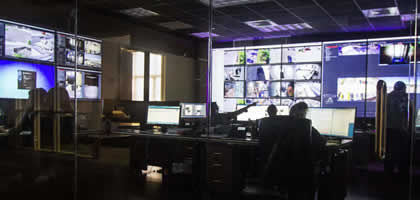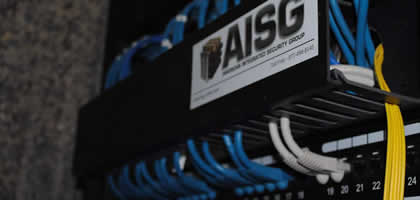We live in the age of technology where access control, card readers, biometric locks, and other devices attached to entry or exit doors, access control is an effective system to control entry/exit points. These secure specific areas, and make an effective keyless management system.
What Is A Hosted Access Control?
A hosted access control is an interface that minimizes risk and eliminates maintenance costs for hardware and software. Central servers store data to allow designated users the login credentials or make amendments. Authorized users can access the system remotely from anywhere to change or alter any detail. The responsibility of access and control remains the end-users responsibility, who uses a card system to administer everything.
Types Of Access Control System
Attaining the benefits of access control security equipment seems obvious when a user emphasizes its features. Having a security control system can give protection to employees, patrons, equipment, assets, and information. Access controls identify and authenticate a specific job for an authorized individual. It provides a keyless entry/exit to a workstation only and nothing more. The access control systems operate on three variations:
Discretionary Access Control (DAC)
Discretionary Access Control is the type of hosted access control system that allows business owners to authorize specific personnel. A single person authorizes others to access certain locations, either physically or digitally. DAC is the least limiting type of access control as it allows a single person to have authority to allow complete control to an individual for location and everything associated. The drawback of this security system is that it has a central or single person control. Meaning anyone with malware programs can execute or manipulate the system with the knowledge of the end-user.
Mandatory Access Control (MAC)
Mandatory Access Control (MAC) is a system used where a high emphasis on confidentiality and classification is essential. This type of access control does not permit an owner to have a say in the controlling of access features to a unit or facility. Instead, the owner and a joint custodian have the management of access. They permit and allow the end-users to gain entry and access through well-established security limitations. The best example of this type of access control is for military installations.
Role-Based Access Control (RBAC)
The role role-based access control system is the most demanded in both households and business security settings. A system administrator of this access control security equipment authorizes users based on their residential or office setting roles. The job responsibilities determine the limitations and permissions of access. The system does not need a single manager to administer control; instead, it gives permission to anyone assigned for the task. RBAC makes security protocols easier as the system administrator assigns specific job titles instead of multiple people for a particular access.
Hosted Controls Versus Traditional Security Platforms
Traditional security systems need local servers and IT managers to administer within an organization’s onsite data center. This compels the IT department to consider the security system’s maintenance as a part of their shared responsibility. Maintenance and planned updates are essential features of this system that the IT department has to notice. On the other hand, hosted access control systems have become popular, as they require very little maintenance. A single person can remotely access it from anywhere, and grants access accordingly. Hosted control works best in safeguarding critical points in homes or offices with only authorized people having access.
Benefits Of Hosted Control Systems
- With hosted access control, viewers everyone having entry or exits within a facility. They can keep track of everyone to ensure no one snuck up without proper credentials
- Hosted access keeps tracks of employees and helps you organize them. It prompts if someone has gained entry for a specific area of if they have not shown up to work yet
- Access control features limits access towards specific areas of the facility that safeguards sensitive documents or resources present
- It gives only approved access to people and significantly reduces theft or unauthorized access
- Provides a remote access feature for viewing and control
Final Word
Access control system equipment has become an essential part of security features for residential or commercial settings. The system allows only authorized entry for critical points, making the system suitable to protect documents and information. Places that handle sensitive data can significantly benefit from the features offered by access control systems.














